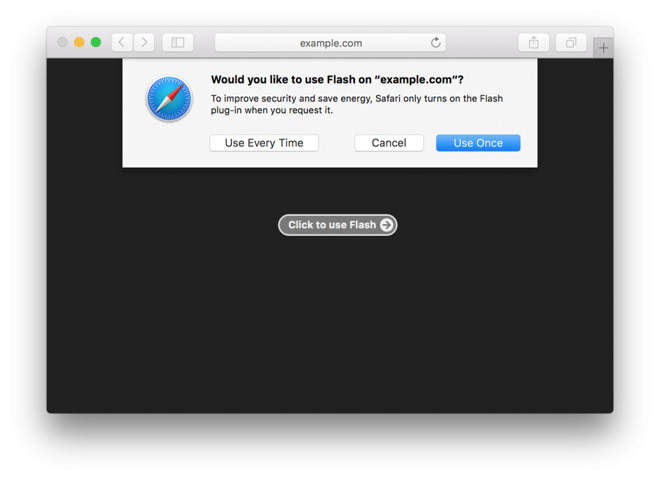Continuing Apple's deprication of third-party plugins, Safari 10 -- bundled with macOS Sierra -- will by default require users to manually activate Flash, Java, Silverlight, or QuickTime to use one of them on a website.

The upcoming version of Safari will prefer HTML5, and no longer tell sites that the plugins are installed, said Safari developer Ricky Mondello in a post on the official WebKit blog. The browser has no built-in exception list, and so people will have to enable plugins on a per-site basis.
If a site element is requesting Flash, it will initially claim that the plugin isn't installed and display an Adobe download link. In Safari 10, clicking on this link will let users know that the plugin actually is on their system, and ask whether they want to activate it once, everytime they visit, or cancel.
With other plugins, people will see content placeholders on a site with some form of "click to use" button. Selecting these will present options similar to Flash.
Once authorization is given, Safari will continue to use plugins on a website until it hasn't seen them plugins used there for "a little over a month," Mondello noted.
The developer added that betas of Safari 10 for OS X Yosemite and El Capitan will be available later this summer.
Apple's decision is said to be driven by efforts to improve security, performance, and battery life. Security in particular has been a recurring reason for the company to distance itself from plugins, since Flash and Java can be favorite vectors for malware.


